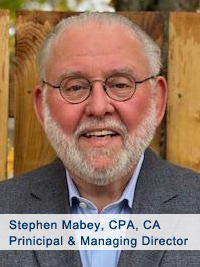In January 2012, H. Karen Gardner, an assistant professor of business administration at Harvard University, authored a paper titled Performance Pressures as a Double-Edged Sword: Enhancing Team Motivation While Undermining the Use of Team Knowledge. For purposes of this article in layperson English, her research suggests innovation is smothered by consensus decision-making.
The legal profession is a classic example. Everyone knows of the growing pressure to make significant changes in many aspects of its business processes and procedures, but there is no real wholesale movement in the profession. Gardner's research points out that:
- High pressure results in teams needing to reach consensus;
- Consensus causes the focus to be on common knowledge;
- Common knowledge results in deference to status in the firm's hierarchy of power;
- The deference results in a conformity to the hierarchy's knowledge; and
- Conformity of knowledge results in no innovation.
..."diversity of opinion" |
Without the old fallback of consensus decision-making we are asking law firm leaders to take risk and make recommendations and execute strategies and directions that are independent of "what are the other firms doing" and the perennial conversation ender "the partners will never agree to this."
Do your respective firms put off decisions because consensus can't be reached?”
So while consensus basis decision making contributes to a lack of thought leadership in firms, a lack of diversity of opinion is equally to blame. In fact it may be impossible to distinguish which impedes thought leadership more.
First a twist on an old saying which goes along the lines of "if you always do what you always did, you will always get what you always got". In today and tomorrow's legal market place the saying must be amended to “you won't get what you always got”.
Consensus, precedent driven, risk adversity are but a few of the characteristics that drive law firms to choose the path of least resistance and constantly replicate themselves. This replication unfortunately happens more often than not at the highest levels of governance in firms which makes thought leadership and change all but impossible when we are honest with ourselves.
Innovation is required for firms to both find and successfully exploit new opportunities that will ensure their long term viability. Innovation requires risks be taken. Risk requires both the willingness and capacity to raise non-status quo ideas / concepts.
Let me stop for a moment and make it clear I am not advocating for that group of partners in your firms who are members of “we can do what you do better” club. Often times they will fall into the trap of the same old same old once their political aspirations are achieved.
...debate and consideration is severely hampered when all you have at your firm's governance table is like-minded individuals... |
I am simply saying that the likelihood of having non-status quo ideas raised with any chance of real discussion, debate and consideration is severely hampered when all you have at your firm's governance table is like-minded individuals.
Least you think that this is limited to the lawyers within your firms think again. This aversion to diversity of opinion is systemic in the profession. While it may be from a different perspective but one does not have to look any further than the most recent elections of the Law Society of Upper Canada (“LSUC”) for affirmation of this systemic issue. Basically almost everyone who openly subscribed to some consideration of the “new old” concepts contained in the LSUC and the CBA's reports on the future of the profession were not elected.
As a result, no one should look for nor be surprised by the absence of innovative solutions to the challenges facing their membership being generated by the LSUC. If we all agree how can we be wrong in our approach!
Irrespective of the legal professions choice to tread water or take a wait and see approach, the pressure to find some way to not only survive in the new legal marketplace but also thrive continues to mount.
The lack of diversity of opinion then drives most firms back into seeking consensus and it is pretty clear where that leaves firms — same old same old!
While the manner of achieving diversity of opinion will be as diverse as the number of law firms, it will only be done by an action-oriented approach that includes nourishment, encouragement and real support (not just verbal but with your vote).

